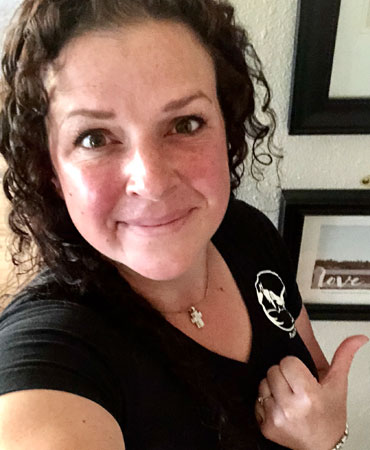By this point, everyone & their grandma has heard about TikTok. The dance-infested, colorful, addictive social media app has exploded across the globe and now has over 2 billion downloads.
Where did it come from? TikTok is the brainchild of ByteDance, a company founded in 2012 by Zhang Yiming in Beijing. From relative obscurity to a now estimated $75 billion valuation, Bytedance has surpassed Uber as the world’s most valuable startup.
TikTok’s Wild Popularity?
What makes TikTok unique? The proprietary “For You” feed is the answer. TikTok’s special algorithm uses advanced AI to learn what kind of videos you enjoy watching and instantly serves up similar videos on a platter.
TikTok skips the reliance on having friends or a network like Instagram, Facebook, or Linkedin to provide you content. It’s all machine-learning, and it works gloriously well. It’s fast, beautiful, and colorful. That’s the recipe for capturing millennial minds in the 21st century.
TikTok is now the 2nd favorite app of teenagers, according to CNBC. Already hot on the tail of Snapchat as the king of social media among teens with far less time in existence, Tiktok’s usage numbers are climbing quickly also. Facebook has felt so threatened that they’ve released “Reels,” an attempt to copy TikTok’s short video features that are so addicting.
It’s really easy to lose track of time with short video after short video bombarding your screen. Companies like Facebook like to think that they’re advanced when it comes to understanding user behavior. TikTok puts them to shame with its crazy fun interface and relentless engine that continuously learns what kind of videos grab your attention.
TikTok is easy to use, vibrant, and addictive. Instagram tries to portray itself as an app for the artist; a platform for the creator. It offers unique features for businesses, advanced analytics, and microtargeting to drive growth for influencers & creators. TikTok leaps past Insta with its simplicity and their relentless algorithm. TikTok has become the center of the action for artists & entertainers in a short period of time.
The TikTok Controversy
For the last decade or two, America has been at odds with China on a lot of different subjects. With allegations of Intellectual Property theft, human rights accusations flying back and forth, and geopolitical games going on constantly, it’s not a surprise that America & China aren’t best friends.
The U.S. has levied sanctions on China, expelled spies, and blocked American companies from shipping important parts to Chinese companies. Basically, our country doesn’t trust China, and having the average citizen’s data in Chinese hands is a national security nightmare.
At the same time, TikTok has truly become a global phenomenon. This is the first time a Chinese-based social media app has dominated the American market instead of being contained exclusively in China.
This situation has created a unique dilemma. President Trump probably doesn’t want to be put in the position where he has to outlaw an app that Americans absolutely love. However, he also can’t risk the Chinese Communist Party harvesting data from unwitting Americans that are just trying to entertain & build a following.
All of these factors make the TikTok ban scenario unprecedented and fascinating to watch. The TikTok ban has basically become a proxy battle for China vs. America, and isn’t it fitting in 2020 that the battlefield is a social media platform?
This pressure from the Trump administration was so forceful that Kevin Mayer, former CEO of the Chinese-owned video app, announced in late August of this year that he was resigning. Mayer stepped down after only three months of being on the job. This came as quite a shock to the public and goes to show just how large the drama has become around TikTok.
There are a couple of different theories on why Mayer departed. One is the increasing political tension as well as the looming TikTok ban. Another reason behind the exit could be a clash of cultures in regards to business between U.S. and Chinese companies when hiring personnel.
Either way, it’s been a drama-filled journey, and marketers are left to wonder whether the app will stick around or not. 2020’s real-life version of Jumanji is not without twists and turns.
The Future of TikTok
This is an extremely uncertain time for everyone & everything on Earth, not least an app that’s situated squarely in the middle of a battle between two of the world’s strongest nations. There are a few possible outcomes that TikTok faces moving forward.
- TikTok is forced to cease U.S. operations by the Chinese Communist Party and leaves influencers & millennials across America devastated.
- TikTok spins their U.S. business off to an American company like Oracle or Walmart (weird, I know) and continues operations in America.
- There’s an ongoing cat & mouse game that hinges on the election. If Trump wins, TikTok will be under serious pressure. If Biden wins, that pressure might ease up a bit.
The Last Word
As things stand, it’s messy right now. Trump’s looming executive order, legal battles in court, deals that are on the table and then off the table. It’s a lot to take in.
Walmart + Oracle are the dream team that appear to be set to purchase TikTok’s U.S. Operations at this point. With the way that 2020 has gone so far, who knows which way this will go.
One thing’s for sure though: American consumers of the TikTok app are the ones who will feel the pain if the uber popular app does in fact end up being banned.










0 Comments